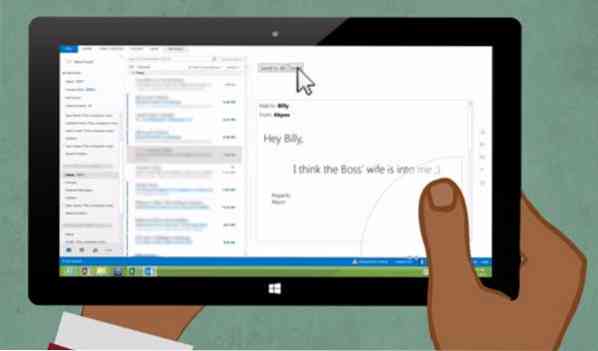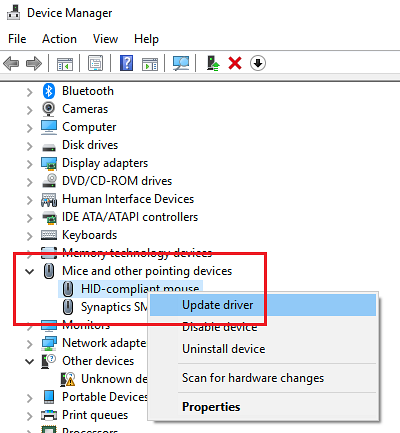Alright, enough talking. Let's get to our top 10 REAL-DEALS for Linux laptops in 2021.
1. Lenovo ThinkPad X1 Carbon (8th Generation)
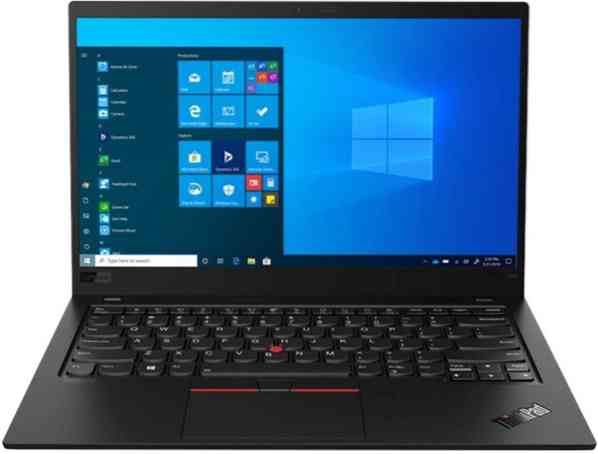
Last year, Lenovo shocked the Linux community by announcing Linux laptops. The reason being, it's one of the first leading manufacturers diving into the Linux ecosystem. And the result is hardly surprising!
Lenovo's first foray, ThinkPad X1 Carbon, easily earns our top spot for the best Linux laptop. With a pre-built Fedora 32 OS, this is a premium lightweight laptop that comes at a mid-range price.
The highlight of this model is the 10th gen Intel's i5 or i7 chip. What's more, it supports up to 16GB of LPDDR3 RAM and up to 1TB of SSD. That's more than enough power to keep business users happy. The keypad, facial recognition, fingerprint reader, and other bells & whistles are exactly what you would expect from a Thinkpad. Class-leading and top-notch!
While Lenovo claims this laptop can run for 19 hours, we feel it's a bit of a stretch. Especially when you are running Fedora, expect the battery to last around 12-13 hours. That is still better than many laptops today.
Our only disappointment is slightly larger and distracting screen bezels. We hope the next upgrade shrinks them down a bit. For now, if you want to go for a prominent laptop manufacturer, Lenovo ThinkPad X1 Carbon (8th Generation) should be your first choice.
Buy Here: Amazon
2. Tuxedo Pulse 14 Gen 1
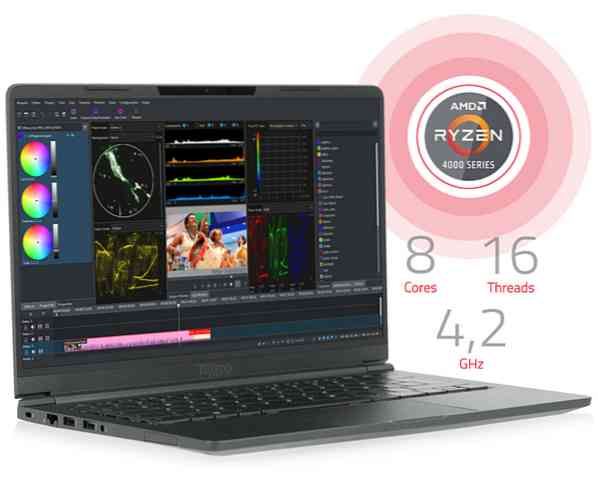
The Tuxedo Pulse 14 is a Linux laptop that easily goes toe to toe with a Thinkpad in terms of hardware and presentation. It's strikingly lightweight, and the subtle black magnesium chassis is superb. This model certainly doesn't look (or feel) cheap, even though it comes at a very affordable price.
The German manufacturer has fit this model with an AMD Ryzen 7 4800H (12MB Cache) processor in terms of specs. Other notable specs support up to 64Gb CCL2 Samsung RAM and up to 2TB Samsung 970 EVO Plus (NVMe PCIe). Like our top pick, the display is full HD IPS ranging 100% sRGB of the color gamut.
So, there's no wonder this machine shines when it comes to performance. It handles all the containers you can run without showing any signs of a slowdown. No heat-ups either! Whether you want to do a heavy compilation, data processing, run multiple threads simultaneously or any other computing-intensive task, Pulse 14 never disappoints.
The only not-so-great aspect is a weak battery. With only half the cores running at slow speeds, we got to almost 5 hours. Plus, we had to switch off the display as well. Software-wise, a switch to OpenSUSE is sure to take some time to get used to. However, all that gets a pass just because of the exceptional performance and ultra-light build. If you are in the market for a powerhouse, Tuxedo Pulse 14 is definitely one of the best laptops for Linux out there.
PreOrder Here: TuxedoComputers
3. System76 Serval WS
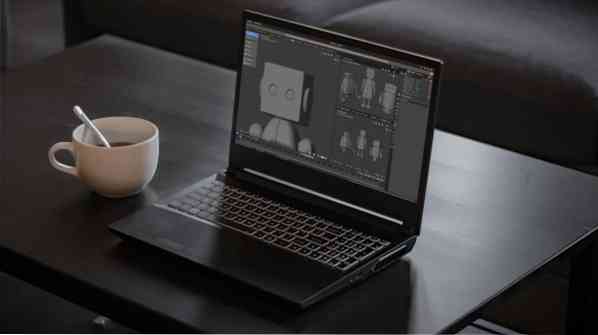
Size has always been a major limitation of laptops. How often do you come across a laptop that boasts of a desktop-like performance? Once in a year, perhaps? Enter System76's Serval WS! This behemoth is one such laptop. It crams desktop-class processors in a laptop chassis.
Of course, this thing is huge. It's thicker than gaming lappies (1.28 inches high) and heavier as well (5.95lbs). That makes it more suitable as a table sitting workstation rather than your travel companion. In a way, however, the additional bulk visualizes the sheer power that lies within this beast.
The biggest draw of this system is customization. You can configure it to your liking if you want. For CPU, you can go from AMD's 3rd gen Ryzen to Ryzen 9 Pro 3900. On the GPU front, there's a choice between NVIDIA GTX 1660 Ti and the next level NVIDIA RTX 2070.
Similarly, the System76 Serval WS supports up to 64GB Dual-Channel DDR4 and up to 8TB of SATA or NVMe storage. You can also choose between the 15 or 17 inches screen. This gives you all the display real estate you may need.
To top it all, this laptop comes with Ubuntu installed by default. You can also dual boot Windows 10 if you want. It's an incredible machine for developmental work as well as occasional gaming. Be mindful, though; this thing isn't suitable for travel.
Buy Here: System76
4. Dell XPS 13 Developer Edition 2020
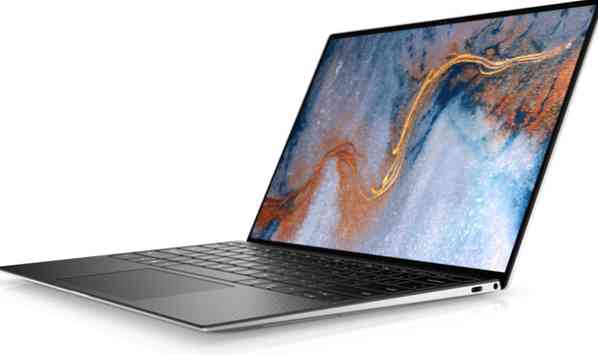
The Dell XPS 13 Developer's Edition 2020 is the ultimate option for developers and power users looking for the best Linux laptop. It's a mean little laptop (first from Dell) that comes with Ubuntu 20.04 LTS OS.
The latest model boasts an 11th Generation Intel® Core™ i5-1135G7 Processor, up to 16 GB 4267MHz LPDDR4x Memory Onboard, up to 2TBGB M.2 PCIe NVMe Solid State Drive and a choice between multiple displays depending on your needs. The laptop has a shiny Platinum silver exterior that feels very decent and a contrasting black interior. That's why it's lightweight yet durable.
Yes, it has Dell's class-leading Infinity Edge display. The bezels around the display are significantly thinner, giving you much more screen real estate to work or play. Touch screen functionality is also built right into the screen. The best thing about this laptop is BIOS updates. Ubuntu 20.04 natively notifies of any BIOS updates. Once an update is available, you get a popup message via the fwupd service.
It's interesting to note that when Dell announced this model, it had support for up to 32Gb of RAM, making all the Linux enthusiasts who work with multiple Linux containers very happy. However, that configuration has been discontinued no plans to sell it again in the future.
Still, Dell XPS 13 Developer's Edition 2020 is a perfect system for developers, administrators, and IT professionals. A base price of $989.00 offers great value for the money, considering the laptop specs.
Buy Here: Dell
5. Purism Librem 14
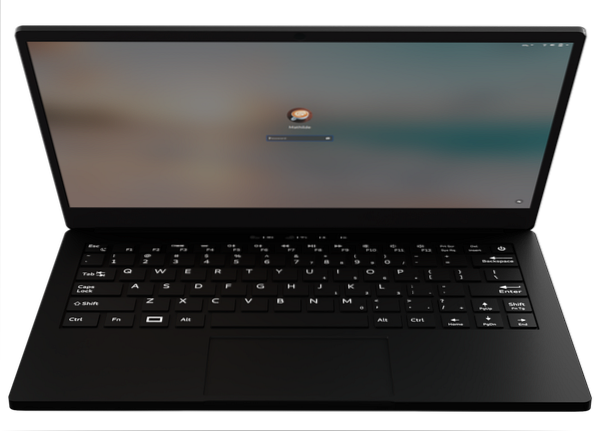
The Librem 14 is currently the most secure Linux laptop in the market. It builds on the success of the Librem 13 by utilizing a 14 inches 1080p IPS display. But manages to fit it into the same footprint due to much smaller bezels. That and its security features make Purism Librem 14 an excellent traveling partner.
Its configuration comprises a six-core (12 threads) Intel's i7-10710U chip, 8GB of RAM, and a 250GB SATA M.2 SSD. Besides, it runs on the PureOS, a version of Linux notable for security via sandboxed apps. So you get HTTPS everywhere. What's more, ad blocking and tracking protection are set up by default. There are multiple USB-A 3.1 and USB-C 3.1 ports along with HDMI, gigabit Ethernet, 3.5 mm audio jack, and an SDCard reader in terms of peripheral connectivity.
One of the major draws of Purism laptops is unique hardware kill switches. These kill switches physically disconnect the camera, mic, wireless, and Bluetooth connections when necessary. This model moves them back to the top. This way, it's easier to see the status of a particular kill switch without bending your head.
Even the BIOS is open source. The laptop uses PureBoot for boot security and allows a user to self-sign their OS. Unfortunately, there's no Secure Boot, though. It also offers support for the LibremKey, a USB security token offering encryption, key management, and easy tamper detection. Therefore, if security is your main concern, Librem 14 is where you get the most bang for the bucks.
Buy Here: Purism
6. System76 Galago Pro
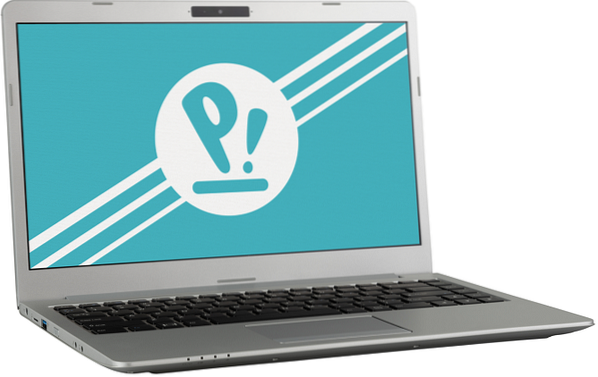
System76 recently upgraded its already popular Galago Pro with Intel's latest 11th generation Tiger Lake chips. Tiger Lake-equipped laptops show much better performance than the previous Comet Lake chipsets, mainly in the graphics department.
However, the update comes at a cost. The newest Galago Pro is slightly expensive than the previous model. As of today, a fully decked-out model will cost you around $2400. Still, System76 continues to sell fascinating Linux machines by adding all the latest hardware.
You can equip this mean machine with either Intel's Core i5 1135G7 or an i7 1165G7 chip. You can also add up to 64 GB of DDR4-3200 RAM and up to a 2TB PCIe SSD. For graphics, it uses Intel's Iris Xe Card, but you can also go for NVIDIA GeForce GTX 1650 by paying 150 bucks extra.
Like all System76 laptops, this one comes with a custom Pop!_OS 20.10 or 20.04 LTS operating systems right out of the box. It's a powerful and reliable Linux distro for computer professionals and software developers. Ubuntu enthusiasts, on the other hand, can opt for Ubuntu 20.04 LTS instead.
Buy Here: System76
7. Lenovo ThinkPad P53 Mobile Workstation
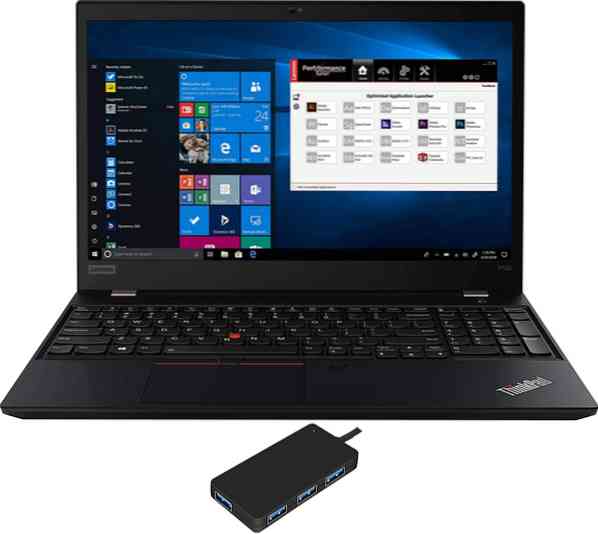
The second Lenovo laptop to get the Fedora treatment last year is the Thinkpad P53 Mobile Workstation. It's an exceptionally sturdy piece of hardware. Calling it future-proof would not be too far off. And it feels great to power on and uses, whether you are a gamer, video producer, or any other content creator. You can also get it in the Ubuntu 18.04 LTS or Windows versions.
The first thing you notice when you open it up is the comically oversized bezels on the screen. Is it too much? We will leave that to you. However, larger bezels do reinforce the panel's durability. On the flip side, Thinkpad P53 is surely not going to win any thinness awards.
The ThinkPad P53 is a full-on desktop replacement. It has a stunning 15.6-inches screen with 4K resolution, HDR, and a DCI-P3 100% color gamut. The laptop can be reinforced with the 9th gen Intel Core i7-9750H chip, Nvidia Quadro T1000 or T2000 graphics card, fast SSD storage, and ample memory as per your requirements.
Overall, Thinkpad P53 is one of the best Linux laptops when the regular lappy can't fulfill your needs, and a regular desktop is out of the equation due to portability issues. It offers a desktop-level performance, military-grade robustness, and expedition-grade battery capacity.
Buy Here: Amazon
8. DELL Inspiron 15 3000
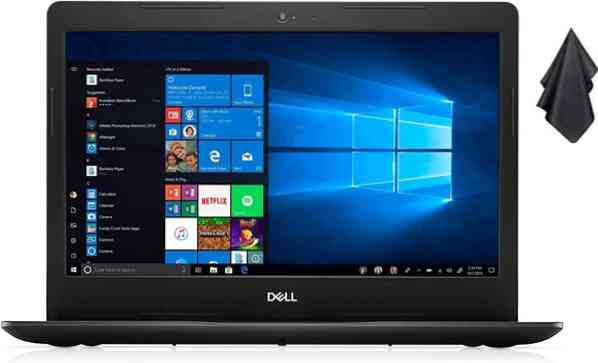
One of the biggest draws of Linux is that it's free. So a laptop as economical as this one makes for a fitting combo. And the good news is, Dell is now selling a Ubuntu edition that comes with a preinstalled version of the operating system. As of writing this article, DELL Inspiron 15 3000 is the best laptop for Linux on a budget.
Obviously, like all budget laptops, this means making sacrifices to hardware specifications and the overall performance, especially in areas where the processor and memory come into play. A lowly Intel Celeron chip powers this laptop, and its 8GB of RAM won't be great for heavy multitasking.
Still, its Ubuntu operating system usually plays nice with low-end hardware. And you can easily dual boot with a Windows OS in the toe. Also, even though the SSD is a mere 128 GB in size, it's a faster M.2 NVMe model. Therefore, it will help keep up the pace when booting up and loading different applications.
The plastic frame houses a 1080p display, which is a rare occurrence at this price range. Not to mention, you get a bounty of full-size USB ports, an Ethernet port, an SD reader, and an HDMI out port. With that said, the Inspiron 15 3000 is no powerhouse. Still, those wanting a budget Linux laptop for basic tasks will find plenty to appreciate.
Buy Here: Amazon
9. Asus Chromebook Flip c434
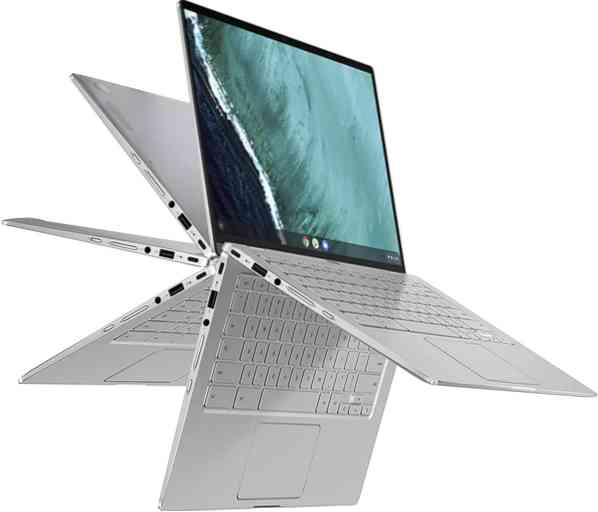
While Google's Pixelbooks are nice, lightweight, and fast, the Linux support is just not good enough. They hang, often require a reboot, and just can not be a full-featured Linux replacement. That's why we went for Asus Chromebook Flip c434, and the Linux support didn't disappoint.
The aluminum build reminds us of the MacBook Air and looks premium. The same can be said of the keyboard, which is a real highlight. It feels nice to type on, well built and solid with no flex. Better than Mac, for sure. The 14 inches screen in a 13 inches form is also fabulous.
It's a very affordable and cheap machine that runs Ubuntu in parallel with the Chrome OS. Therefore, you can share files between the two OS without any dual boot. It's just a single computer with a single GUI. Both OS are there at the boot-up, and you can select the one you like.
Another biggest benefit of using a Chromebook as a Linux laptop is that you can also use it as an Android touchscreen tablet when you want. Overall, Asus Chromebook Flip c434 is a great option for users on a budget. It is also our top pick for the best Chromebooks in 2021(Link Chromebooks article)
Buy Here: Amazon
10. HP Dragonfly Elite
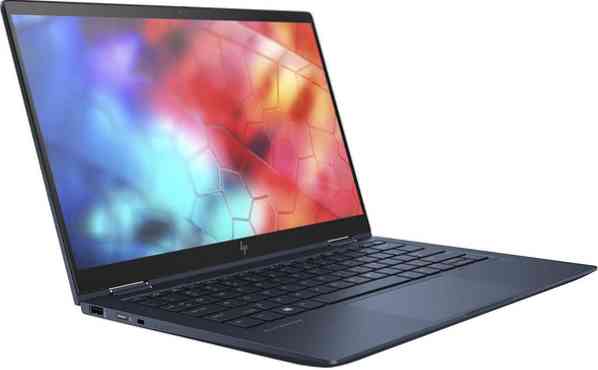
Finally, we have a rather unconventional player on our list. This first-generation 2 in 1 HP flagship isn't usually your first thought when looking for the best Linux laptop. It comes preloaded with Windows 10 OS, but it performs exceptionally well with Ubuntu 19.10 and other Linux distros.
The installation process takes up good 10 minutes of your time. However, once you pass this time and the post-installation confirmatory restart has passed, you get a fully functional Linux laptop. The touchscreen, keyboard function keys, stylus, touchpad, display, and Wifi, everything works without any fuss or messing around.
It's a great around performer thanks to an eighth-gen Core i7 processor, 16 GB of RAM, and large SSD storage. The chassis is a lightweight magnesium alloy, making it exceptionally portable. In addition, the 13.3 inches ultrabright touchscreen flips back to give you a choice between tent and tablet modes.
Perhaps the biggest hurdle to clear here is the exorbitant cost. HP Dragonfly Elite doesn't come cheap. But it's a premium laptop with premium features that runs Linux without any tweaking. There's no dual boot option, though. So your existing Windows OS will get replaced by a safe and secure Linux distribution.
Buy Here: Amazon
Best Linux Laptop - A Buyer's Guide
Finding the best laptop for Linux can be tricky if you don't possess the right knowledge. Therefore, you can easily end up with something shiny that struggles to cope with Linux. To avoid that shame, consider the following:
Too Hot? Wait for at least 3 months.
If a laptop is too hot at the moment, wait for at least 3 months. Linux's share in the laptop market is quite small. Therefore, computer manufacturers take a longer period to fix any driver issues with their newest hardware components. Waiting for 3 months will ensure all the driver issues have been resolved (or at least, you will tell when fixing is coming).
Check Compatibility
When you are going for a laptop that doesn't come with a preinstalled Linux distribution, check compatibility. The two main components that may give you big Linux support issues are GPU and the Network Adapter. Besides, it's also good to check the compatibility of a fingerprint reader, audio, keyboard, and touchpad. Backlit keyboards can also cause issues, though rarely.
Linux-Ready Laptops
To avoid compatibility issues, you can go with a Linux-ready laptop. These come with a Linux distro preinstalled and remove all the hassle of setting up your machine. Depending on the manufacturer, you can even get a couple of distribution options. However, their downsides are that you get very little customization. You may not get a Linux distribution of your choice.
RAM
Linux is memory intensive. Both of the most popular desktop environments - KDE and GNOME - need higher RAM. That's why you should never go for a Linux laptop that has less than 8 GB of RAM. This way, you will be able to use the same laptop for at least 3 years in the future without worrying about slow down or not meeting the requirements of distribution vendors.
SSD
Ensure your laptop comes with an SSD, irrespective of the distro you are aiming for. An SSD is much faster than a regular rotational disk. Normally, KDE distros take a longer time to boot in comparison with their GNOME cousins. Some Linux distros, such as Kubuntu and Ubuntu, offer features like “ureadahead” to speed up boot times. Yet, not all distros come with such utilities.
GPU
If possible, go with an Intel GPU for your Linux laptop. AMD GPUs are fine as well. But Intel, in recent years, has thoroughly invested in its open-source projects. That makes their hardware much more compatible and well suited with Linux distros. In case your laptop has a discrete GPU, you cannot switch automatically to an integrated GPU in Linux.
What Linux distro should I use?
ALL Linux distros use the same Linux kernel. The only difference is different versions and configurations. That's the reason they are called LINUX distributions. So, there is no one-fits-all best distro to run. Not even for particular devices. That's because, in a fair comparison, all would perform the same. And the same holds true for hardware support.
Battery Consumption
Always aim for a laptop that has better battery consumption. Linux draining batteries is not really a problem. It's pretty much a GIVEN. The reason being, Linux is a high-performance OS. It's not an energy-saving one. You can also find a way to use, configure and optimize your power management that suits your needs. Otherwise, high performance will eat up energy. With an I7, never expect a 12 hours battery life. That's YOUR fault, not a flaw with your laptop or Linux.
Final Thoughts
Linux has been quite a niche “product” since its beginning. Manufacturers like Toshiba or ACER aren't churning out inexpensive Linux laptops and probably never will. But that's not a problem. Getting the best Linux laptop is still easy. You have big manufacturers like Dell, HP, and Lenovo catering to the enterprise crowd. At the same time, smaller companies like System76 keep the enthusiasts happy. In theory, you can install Linux on any laptop if it has the right configuration for the hardware inside. If you are looking for the best laptop for Linux, any option on this list will serve you well. We wish you all the best. Thank you for reading!
 Phenquestions
Phenquestions
